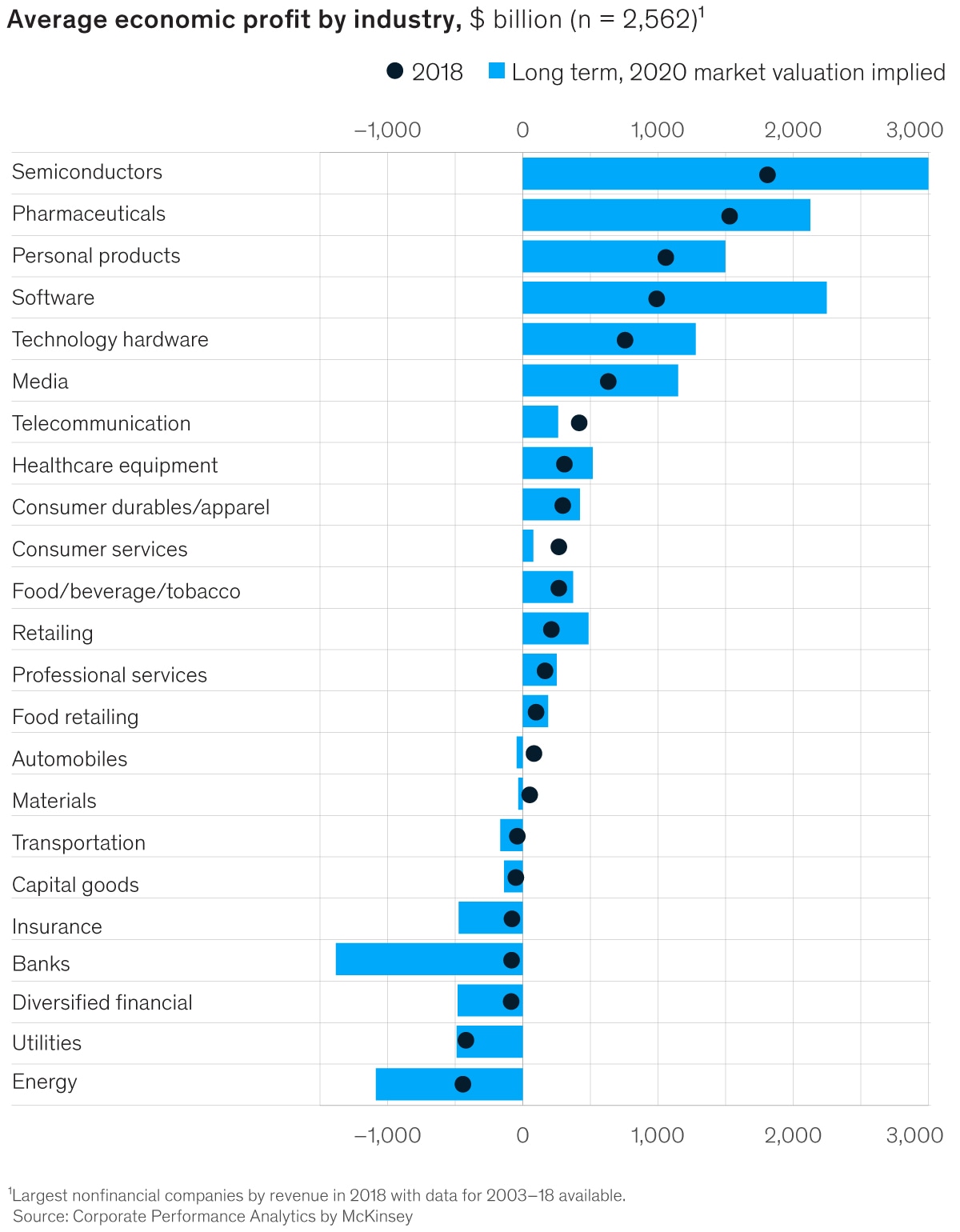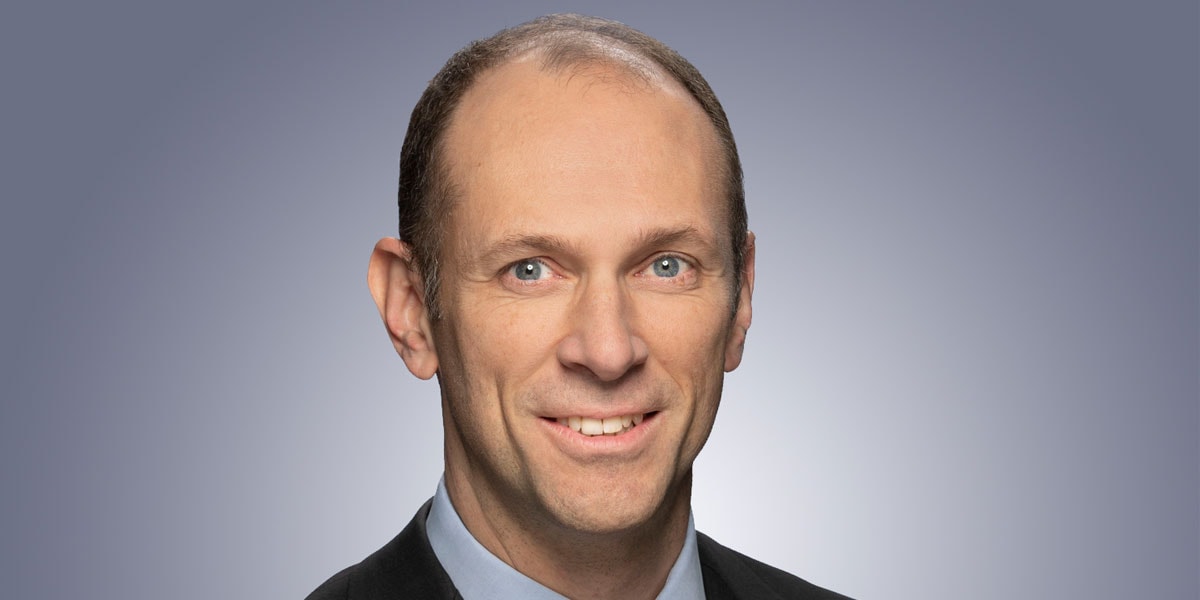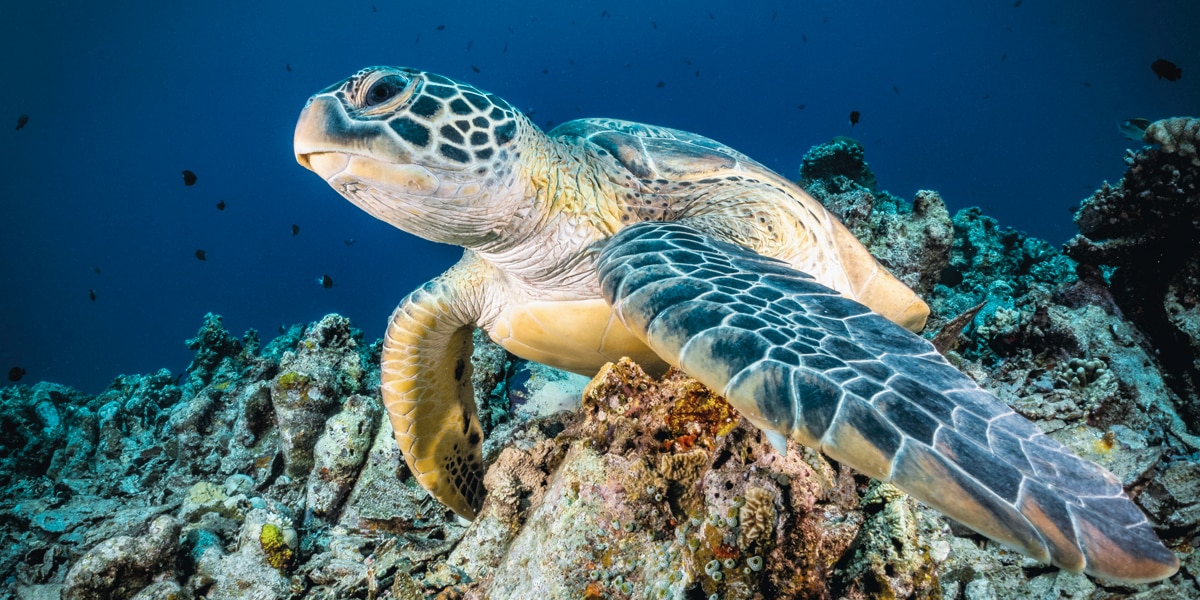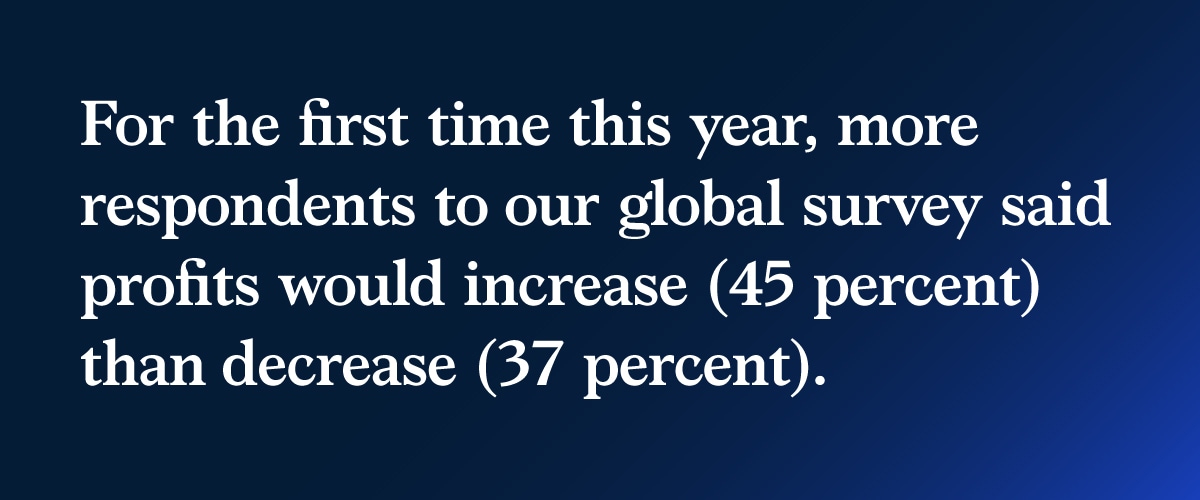
| This week, how the pandemic demands agility. Plus, Austan Goolsbee, the former chair of the Council of Economic Advisers under President Obama, on two economic "speed bumps" the US must avoid, and what lessons Germany's travel recovery holds for the broader industry. The Shortlist is taking an August break; we'll see you back here in a few weeks. |
|
|
|
Agile, agile, agile. That's been a business mantra for years now. Agile organizations are designed to be fast, resilient, and adaptable—exactly the qualities needed to meet the operating and business-model challenges unleashed by the COVID-19 crisis.
|
| The model. In "The five trademarks of agile organizations," we broke down how organizations can create this stable yet dynamic model. That 2018 advice holds true in crisis: set a "North Star"–style shared purpose, empower networks of teams to decide quickly and learn from mistakes, and ignite passion with a dynamic personnel model. |
| Faster and better. In responding to the current crisis, many companies have had to increase the speed of their decision making while improving productivity and using tech and data in new ways. These shifts have worked: organizations in a wide range of sectors and geographies have accomplished difficult tasks and achieved positive results in record time by working faster and managing better. Examples include a global telco that retrained 1,000 store employees to conduct sales meetings by video in three weeks and an industrial factory that ran at more than 90 percent capacity with 40 percent of its workforce. |
| Crisis mode. Our research has shown that companies with agile practices already embedded in their operating models have managed the impact of the COVID-19 crisis better than their peers have. We analyzed 25 companies across seven sectors that have undergone or are currently undergoing an agile transformation. According to their self-assessments, almost all of their agile business units responded better than their nonagile units to the shocks associated with the pandemic by measures of customer satisfaction, employee engagement, and operational performance. |
| Executives told us that their agile teams have continued their work almost seamlessly after the shock, without substantial productivity setbacks. In contrast, many nonagile teams struggled to transition, reprioritize their work, and be productive in the new remote setup. |
| Agile leadership. Since the COVID-19 crisis began, we have seen the performance edge among organizations and leaders with adaptable management and strong capabilities. Many of the companies that have battled successfully in the crisis have done so from a wartime footing—what former US secretary of defense General James Mattis, in a discussion with McKinsey, referred to as operating "at the speed of relevance." |
| Of middles and mindsets. Now, as the world feels its way toward recovery, the risk is that inertia will set in, along with a longing for a return to the operating style of earlier days. In our conversations with CEOs, we are struck by stories of how some young middle managers are defying the problems and frustrations of this difficult period. Only by advancing new cadres of adaptive, resilient leaders, as well as a middle bench fluent in technology that cuts across silos, will companies be able to work with the speed and impact necessary. Time for some battlefield promotions. |
|
|
 |
| OFF THE CHARTS |
| The best industries are getting better … |
| … and the rest, not so much. The COVID-19 pandemic is widening the gap between leading and lagging industries. The six best-performing industries, including semiconductors, pharmaceuticals, and software, have added $275 billion a year to their expected economic-profit pool, while the least profitable six—including insurance, utilities, and energy—have lost $373 billion. |
|
|
| Check out our chart of the day here. |
|
|
 |
|
|
| INTERVIEW |
| The 'virus is the boss' right now |
| Austan Goolsbee, the former chair of the Council of Economic Advisers during the Obama administration, shared his thoughts about the impact of the COVID-19 crisis on the US economy, how the pandemic has exposed political weaknesses, and the steps needed to restart successfully. "The countries that prioritized health not only had better health outcomes, they had better economic outcomes too," he told McKinsey. "Here, where the main focus is on the economy rather than stopping the disease, we got the disease and it wrecked the economy. So the two go together, for better or worse." |
|
|
 |
| MORE ON MCKINSEY.COM |
| Lessons from the German travel recovery | Our proprietary travel dashboard provides insights on how the travel industry can cope with shifts in demand patterns. We focused on Germany because its metrics are commonly seen as leading the recovery curve. |
| How to reopen cities | A successful reopening requires a conservative, staged approach, beginning at virus levels near zero—coupled with many safety measures for public transport. Our research suggests that leaders of city governments can focus their efforts in three broad areas. |
| COVID-19 and the push for gender equality | Research shows that what is good for gender equality is good for the economy and society as well. The pandemic raises critically important choices about removing barriers to female labor-force participation. |
|
 |
|
|
| WHAT WE'RE DOING |
| Protecting the ocean, one young innovator at a time |
| These days, when Dhia Fani swims in the ocean, she often confuses plastic with small jellyfish. "There is more and more trash at the beach, and it has nowhere to go," says the Bali-based specialist at McKinsey.org, an independent not for profit founded by McKinsey. "And I know that what I see at one beach is also what is impacting another island beyond the horizon." |
| Indeed, an estimated eight million metric tons of plastic waste enter the ocean every year, contaminating water and wreaking havoc on marine wildlife. Without sustained action, the amount of plastic leaking into the ocean will increase dramatically. |
| McKinsey.org recently partnered with the United Nations and GreenBiz to host Reimagining Ocean Action: Youth Innovation, a virtual event that convened young innovators from around the world to share solutions and strategies to protect the ocean. Dhia—who works on Rethinking Recycling, the flagship program of McKinsey.org—was among the four youth innovators who shared ideas at the event. |
| She was joined by Lalita Junggee, whose work focuses on the connection of clean oceans to the UN's Sustainable Development Goals; Sarah Travers, who uses GPS and data to track and encourage sustainable fishing; and Chiagozie Udeh, who studies climate's connection to the ocean. |
| While ocean waste has long been a challenge, the COVID-19 crisis has intensified the urgency to act on this problem. "Lockdown orders and an economic slowdown have brought supply chains for recycled products to a near standstill, even as demand soars for products made with recycled materials, such as toilet paper, canned goods, and shipping boxes," says Shannon Bouton, a field biologist by training who leads McKinsey.org's work on sustainable communities. "The cost of waste that is not properly managed is estimated to be trillions of dollars annually in ecosystem damage to the environment and public health." |
| Dhia spoke about why protecting the ocean starts with ensuring that waste gets recycled and never ends up leaking into the water, drawing on her work in Indonesia. |
| As part of Rethinking Recycling's Indonesia program, Desa Kedas, which means "clean village," Dhia works side by side with community leaders to reengineer underutilized government waste-management facilities into thriving, community-driven recycling centers in Bali's capital city, Denpasar. To date, the program has helped divert roughly 50 percent of waste from landfill and increased essential waste-worker wages by 200 percent. |
| "What we've learned through Rethinking Recycling is that the way to solve our global waste problem is to ensure that we empower local communities with the tools and skills to solve for waste recovery, to have ownership, and to contribute to the solution at large," she says. The team is now building the Rethinking Recycling Academy to scale the pilot's success across Bali and other cities in Southeast Asia. |
| Born and raised in Indonesia, Dhia considers this work deeply personal. "Growing up in an archipelago means you know exactly where the fish that you eat came from—you know the fishing villages, the fisherman, as well as their lives, and you see children playing by the beach," she shares. "That's why I want to dedicate this period of my life to solving this issue." |
|
|
|
|
| BACKTALK |
| Have feedback or other ideas? We'd love to hear from you. |
|  |
|
|
| Copyright © 2020 | McKinsey & Company, 3 World Trade Center, 175 Greenwich Street, New York, NY 10007 |
|
|
|






No comments:
Post a Comment